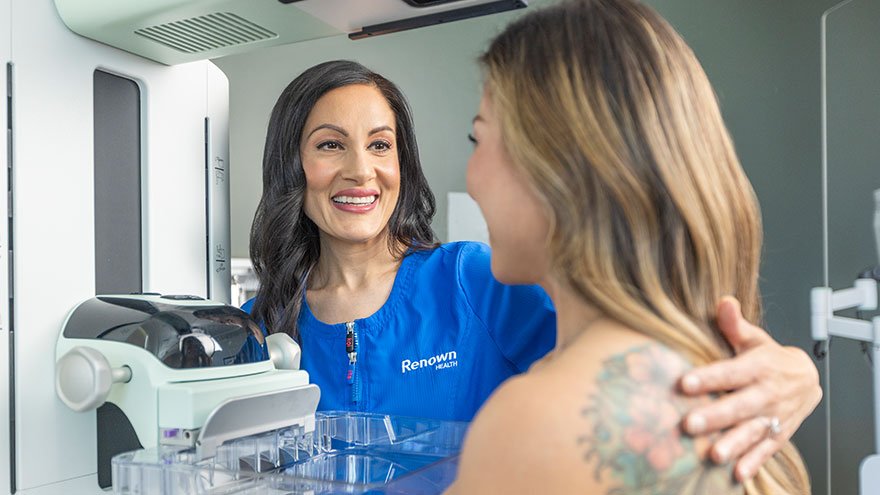

Did you know: More than 2.9 million men in the United States who have been diagnosed with prostate cancer at some point are still alive today. Prostate cancer is common, but also treatable, especially when caught early. Dr. Michael Hardacre of the Renown Institute for Cancer explains.
With the exception of skin cancer, prostate cancer is the most commonly diagnosed form of cancer in American men. In fact, the American Cancer Society offers these key statistics:
- About 1 man in 9 will be diagnosed with prostate cancer during his lifetime.
- Prostate cancer develops mainly in older men and in African-American men.
- About 6 cases in 10 are diagnosed in men aged 65 or older, and it is rare before age 40.
- The average age at the time of diagnosis is about 66.
The good news: This form of cancer is very treatable when also detected early. Michael Hardacre, MD, radiation oncologist with Renown Institute for Cancer, is here to explain more about prostate cancer screenings and their role in early detection.
What is the prostate?
The prostate is a gland that only males have, and it makes part of the seminal fluid.
Prostate cancer begins when the cells in the prostate gland start growing uncontrollably due to a change in the cell’s genes.
Researchers are working to find what leads to the disease. Certain types of prostate cancer are hereditary, or passed on through genes. However, most types of prostate cancer are acquired and developed later in life.
What are some of the signs of prostate cancer?
Common signs of prostate cancer include:
- Frequent urination
- Weak urine flow
- Painful urination or inability to urinate
- Blood in urine or semen
- Painful ejaculation
- Erectile dysfunction
If you notice any of these signs, talk with your primary care doctor. Although it may be intimidating to talk about any of these signs or symptoms, the earlier prostate cancer is detected, the better the options for treatment.
How can you screen for or detect prostate cancer?
The good news is that prostate cancer can often be found before symptoms appear, because screening is as simple as a blood test. Your doctor will look for levels of a prostate-specific antigen in the blood. If the results come back with anything concerning, then additional testing would be recommended.
A transrectal ultrasound can also be used, which is usually painless and only takes about 10 minutes to complete. This exam gives the doctor an image of the prostate to measure its size, which can help determine the density of the prostate-specific antigen. If this test comes back with any suspicious results, then your doctor may recommend a biopsy.
What are the treatment options?
Depending on each case, treatment options for men with prostate cancer might include:
- Watchful waiting or active surveillance
- Surgery
- Radiation therapy
- Cryotherapy (cryosurgery)
- Hormone therapy
- Chemotherapy
- Vaccine treatment
- Bone-directed treatment
It’s important to discuss all of the treatment option with your doctors, including goals and possible side effects, to help make the decision that best fits your needs.
Some important things to consider when choosing a treatment option also include:
- The stage and grade of your cancer
- Your age and also your expected life span
- Any other serious health conditions you have
- Your feelings (and your doctor’s opinion) about the need to treat the cancer right away
- The likelihood that treatment will cure your cancer (or help in some other way)
- Your feelings about the possible side effects from each treatment
Renown Institute for Cancer | 775-982-4000
At the Renown Health Institute for Cancer, our experienced team provides the support and care to maintain the highest quality of life and then achieve the best possible outcome, all in one location that’s close to home. Our dedicated team, clinical expertise and also advanced treatment options allow us to tailor care to each patient.
Learn about:
- Our Team
- Cancers We Treat
- Screening and Prevention
- Treatment Options
Related Blogs


7 Symptoms of Breast Cancer in Young Women
